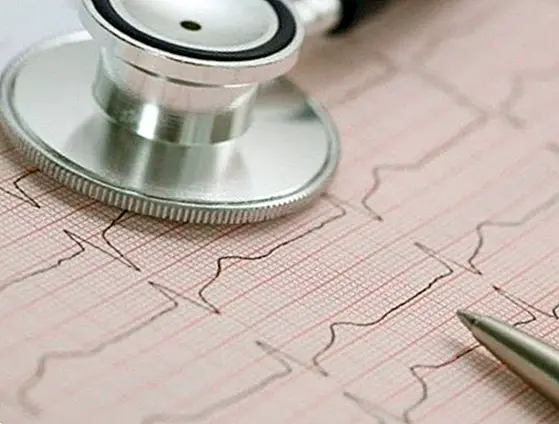Alarm symptoms of an arrhythmia and recommendations when having it
It is known as arrhythmia to the disturbance or disturbance of the heart rhythm that a person can suffer at any time of his life. It can occur for various reasons, from serious cardiac diseases, to simple alterations of the heartbeat by the execution of some physical exercise.
It is important to know the types of arrhythmia in order to identify what may be generating it and how your symptoms should be treated: bradycardia It is characterized by a decrease in heart rate below normal, 80 beats per minute.

While the tachycardia it refers to the increase in heart rate to levels above normal, 100 beats per minute.
It should be noted, that not all patients experience symptoms. These may or may not occur, depending on the reason that caused the heart disorder; Usually, when the patient goes to a health care center is because he is presenting a severe picture of the disorder, such as heart failure.
Symptoms common to suffer from alterations in heart rate
Dizziness
Frequently, the patient being "dizzy" experiences a sensation of instability that can become unpleasant and dangerous, including loss of balance and hearing.
When dizziness is experienced accompanied by alterations in heart rate, very regularly, we may be in the presence of a serious pathology; you should go to the doctor as soon as possible to receive an appropriate treatment that must be followed to the letter. It is not advisable, under any circumstances, to interrupt or alter it.
Syncope
It refers to the fainting and loss of consciousness of the patient, in this case, we refer to the syncope that is experienced by the alteration of the heart rhythm, producing, insufficiency of the blood supply necessary for the functioning of the brain or an uncontrolled acceleration of the same.
We speak of a very delicate symptom, therefore, should see the doctor as soon as possible to avoid serious complications.

Fatigue
It can be suffered as a result of the arrhythmia; It is a common symptom and in general, a feeling of tiredness, weakness, drowsiness and desire to rest is experienced.
It does not necessarily represent a serious warning, it may be the case of a benign arrhythmia due to some physical activity or a sudden emotional change. It is recommended to practice breathing and relaxation techniques.
Palpitations
The heartbeat, in general, goes unnoticed by most people; that is why, "feeling palpitations" is usually a symptom or alarm of the heart rhythm disorder.
Patients may experience it as a sensation of acceleration of the heartbeat, which can be very annoying. It should be a reason for medical consultation when it occurs very frequently.
Angina
It results from the condition that the heart can suffer due to lack of oxygen and blood flow, as a consequence of the disorder or alteration of the heart rate due to the effect of other pathologies, such as arteriosclerosis; supposing the obstruction of some artery due to the presence of fatty substances.
Frequently it generates pain in the chest and sensation of oppression. This symptom must be paid a lot of attention, it is very delicate, and it can produce death if it is not treated in time.

Polyuria
After this symptom the patient urinates more frequently due to the increase in blood flow velocity. It occurs when the heart rate increases to higher than normal levels.
Heart failure
It is frequent when the heart experiences abnormal heart rhythms, very accelerated or very diminished, making it impossible to fill with blood and oxygen. It is a serious warning, it can generate severe consequences to the organism, even death. For this reason, the doctor will prescribe the appropriate treatment.
General recommendations to consider to prevent arrhythmia symptoms
- The importance lies in going to the doctor quickly when these symptoms are experienced. Each one of these can mean a group of important alarms, which the body sheds to warn us about the presence of some serious pathology, allowing us to take the necessary measures in time, avoiding with this, multiple complications.
- Follow the doctor's recommendations, take the treatments without altering them to avoid relapses.
- Stay away, as far as possible, from situations that generate stress, and thus avoid, that can worsen any health problem and worsen your symptoms.
- Maintain a balanced diet by eliminating saturated fats.
- Incorporate exercise routines, perform activities that generate well-being.


